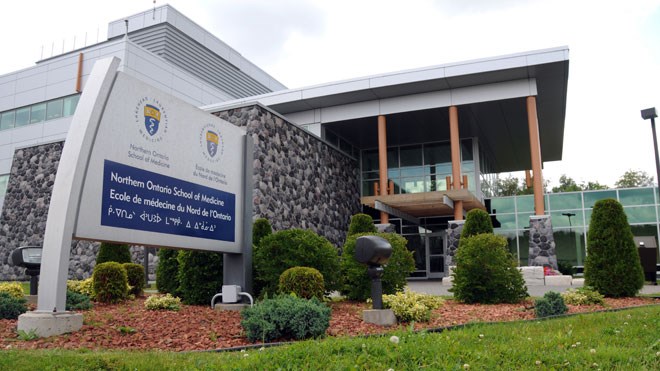The Northern Ontario School of Medicine (NOSM) and University of Minnesota Medical School Duluth (UMMSD) have established a cross-border program to improve the health and educational opportunities of First Nations, Métis and Native Americans in Northern Ontario and Northern Minnesota.
The program will provide an exchange among cross-border experts in Indigenous health profession programs and ideas on mentorship programs for undergraduate and postgraduate learners including students, residents and faculty, as well as compare models for health research with Indigenous communities and examine each school’s ties to and relationships with Indigenous communities.
Leaders, faculty, staff and community stakeholders from UMMSD and NOSM met in Thunder Bay on April 19 to discuss the project and Indigenous health as it relates to their respective institutions.
“We are pleased to welcome our colleagues from the University of Minnesota Medical School Duluth to the Northern Ontario School of Medicine as part of our ongoing efforts to exchange knowledge about the issues currently facing Indigenous peoples in Northern Ontario and Minnesota,” said Dr. Roger Strasser, Dean and CEO of NOSM.
“This meeting will bring together a spectrum of experts whose insights and ideas will help fulfill the School’s mandate to provide culturally safe care and education to these populations.”
The program will ultimately provide a framework to create a First Nation and Métis Centre of Excellence for NOSM, based on the model of the Center of American Indian and Minority Health (CAIMH) at UMMSD.
The CAIMH was founded on the principle of self-determination, maintaining Native leadership and remaining connected to local, state, regional and national Native American communities and organizations.
“Indigenous peoples in Canada and the U.S. have a lower health status, disproportionately higher disease burden and lower life expectancy than non-Indigenous populations, and these inequities exist in large part because of a lack of access to adequate, culturally aware health care,” said Dr. Darrel Manitowabi, Interim Director of Indigenous Affairs at NOSM.
“This project addresses this problem by developing and improving existing Indigenous health profession programs, sharing knowledge and experience on providing culturally sensitive care and mentorship, as well as curriculum and programming to improve the health status of First Nation, Métis and Native American peoples.”
